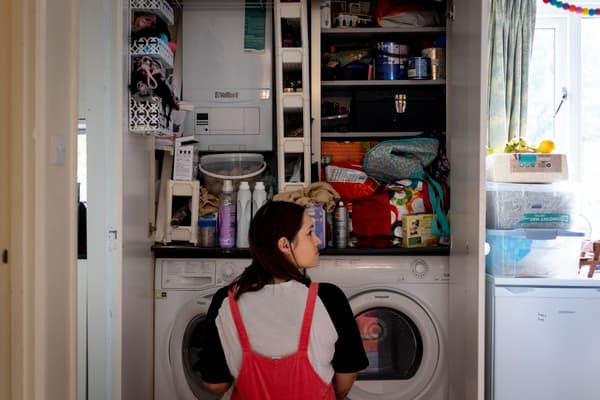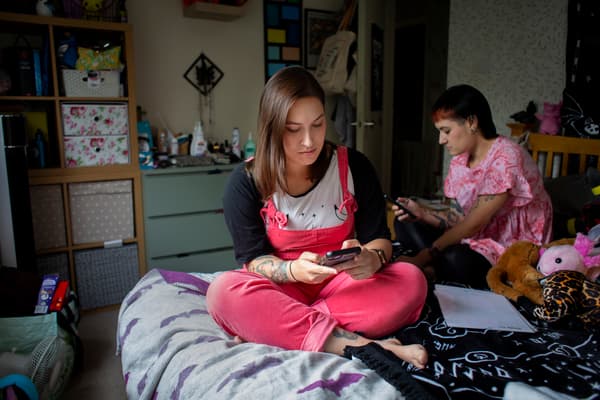IKEA Life at Home Report reveals Australians are trending above the global average in 'homebody behaviour'

This year’s Life at Home Report just released by IKEA, reveals 43% of Australians feel more positive about their home in 2022 than they did in 2021, with this sense of optimism significantly higher than the global average of 37%.
IKEA surveyed over 37,000 people in 37 countries, including Australia, and found that 65% of Australians feel their home reflects who they are, and 68% feel they can be themselves at home.
With the statistics showing Aussies are feeling high levels of comfort at home, Australians skewed higher than the global average in a number of ‘homebody’ behaviours. 28%, or more than 1 in 4 Aussies are likely to pretend to have plans because they want to stay home, well above the global average 23%. 41% have talked to themselves while home alone, more than the global average of 30%. 10% have done work in the bathroom and 28% have eaten a meal in bed.
The IKEA Life at Home Report revealed that the economy and household finances outrank climate change as people’s top concerns globally. Australia is in line with this trend, with money woes top of the worry list. 72% of Australians are concerned about the general economy and 64% about their household finances. The report points to the impact rising cost of living is having on day-to-day life, with 29% of Aussies expecting to cancel or postpone home improvement or renovation plans and 45% saying they would cut back on entertainment and hobbies out of home as wallets become thinner.
Nader Agha Life at Home expert, IKEA Australia says: “The 2022 Life at Home report captures how Australians are feeling about their homes at this ever-changing time. Although we’ve come out of a period of having to stay home during the pandemic, the surprising thing is Aussies are now actually choosing to embrace their homes more than ever. We’re seeing this reflected so clearly in the statistics with homebody behaviours, those super personal and sometimes unique rituals and activities you do when no one else is around, are higher for Australians than the rest of the world.
“As we see a reduction in large scale renovations and Australians embracing smaller, more affordable home improvements, IKEA can help by showing how to combine products and smart home furnishing solutions, supported with tips and tricks that are unique to your needs. IKEA can also help with creating a more sustainable life at home, by showing how making small changes at home can contribute to a positive impact on the planet.”
The annual IKEA Life at Home Report is the biggest report of its kind in the world. Every year it gives a unique snapshot of how people are living and feeling at this moment in time.
For the first time this year, as part of the Life at Home Report, IKEA has announced a collaboration with renowned American photographer Annie Leibovitz, who will step into the role of IKEA Artist in Residence in 2023. Leibovitz is celebrated for her ability to capture the inner life of her subjects, whom she engages in intimate spaces or moments. The power of her work lies in its capacity to reveal truths that feel candid, exploring profound aspects of the universal human experience.
“The home has always been important in my work,” Leibovitz explains. “I’ve been photographing people in their homes since I began. It’s a way to understand who a person is. The advice I give to young photographers is to photograph their families. It’s one of the best ways to start. I’m excited to partner with IKEA in 2023.”
During Leibovitz’s tenure as IKEA Artist in Residence, she will travel around the world, photographing people in their homes in seven different countries: Japan, the United States, Germany, Italy, India, Sweden, and England. She will create a series of 25 portraits that illuminate the nuances of ‘life at home’, creating a powerful photographic document inspired by the Life at Home Report.
To read the full global Life at Home report, go to www.ikea.com/au/en/life-at-home/
Australian Life at Home Report – Additional key findings
- 83% of Australians are experiencing frustration when it comes to their household.
- The top 3 regular frustrations for Australian households are: an untidy or unclean home, chores, and having too many things without a designated place.
- 65% of Australians feel their home reflects who they are, with things they have bought themself, having space for needs and interests, and things that help remember past memories the top 3 important elements to make home a reflection of who they are.
- 53% of Australians say helping them to unwind/ relax is the most important thing to have in an ideal home.
- Australians are more likely to value being more self-sufficient with food and energy important in an ideal home than the global average (31% for Australians, 23% globally).
- 14% of Australians have hidden from people they live with to get some privacy at home.
- 54% of Australians feel the way they live their life at home is not frequently represented in the media.
About the research:
The quantitative research was carried out by YouGov on behalf of Ingka Holding B.V. – IKEA Group. YouGov is an international research and data analytics group. The quantitative Life at Home study was conducted as an online survey among a national representative sample of people aged 18+ in 37 countries, where a total of 37,405 interviews were collected. The following countries were included: Australia, Austria, Belgium, Canada, China, Croatia, Czech Republic, Denmark, Estonia, Finland, France, Germany, Hungary, India, Ireland, Italy, Japan, Latvia, Lithuania, Malaysia, Netherlands, Norway, Philippines, Poland, Portugal, Romania, Serbia, Singapore, Slovakia, Slovenia, South Korea, Spain, Sweden, Switzerland, Thailand, United Kingdom, United States.
The data collection was completed in the period from July to August 2022. Quotas have been applied on gender, age and region, and data was weighted according to the dimensions of gender, age and region on the basis of an ideal weighting from statistics in each country, so that the results are representative of the population in regard to the target group. Bases: All adults = 37,405.
Australian statistics are based on the Australia dataset from the Life at Home 2022 quantitative study conducted by YouGov. Over 1000 Australians were surveyed.
Images for download


